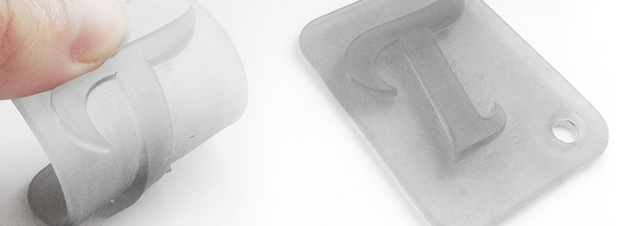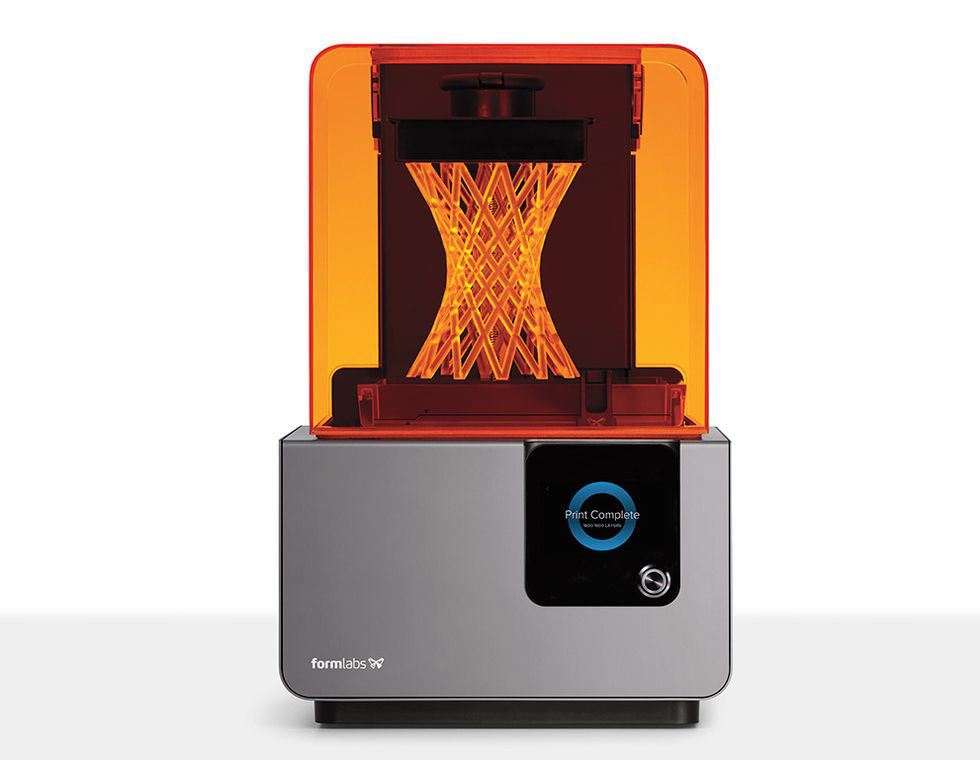
Flexible resin
Flexible material with nearly perfect surface treatment and high level of detail. For example, suitable for handles or seals. This technology allows the creation of very accurate models or even functional products, where simulating flexible characteristics of rubber or silicone is necessary.
Typical use
Models and products with flexible parts – handles, stamps, seals.
Also see Applying 3D printing
Design guide
Maximum size1: 145 x 145 x 175 mm
Minimal wall thickness: 0,8 mm
Minimum details2: 0,1 mm
Layer height: 0,025 – 0,1 mm
1 largest model size printed as one piece, larger models are required to be printed as separate parts but they can easily be connected
2 details and structures of models smaller than the minimum details size can be wrongly portrayed or get lost entirely
Finishing
The final model can be edited further to achieve even smoother surface.
Colouring is suitable when the base is basic paint for plastic surfaces and afterwards acrylic spray paint.
For bonding, epoxy glue, which creates flexible joint, has proven effective.
Technology
Layering acrylic based photopolymer cured with UV light by the company Formlabs. It creates smooth surface and accurate geometry.
Printer, Form 2
Price
starts from 1.10 per cm3
Ships in
1 – 3 business days
Properties
Resistance ***
Surface roughness *****
Details ****
Flexibility *****
Transparency ****
+ PROS
resistance
high level of detail
accuracy
– CONS
limited range of colors


